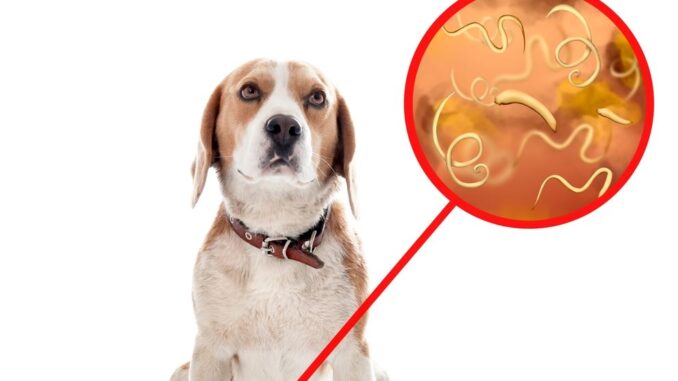
This article was updated on May 23rd, 2023
When I was in veterinary practice, it wasn’t unusual to get a call from a puppy parent who found worms in their fur baby’s poop. I always advised them to bring their pooch in with a stool sample. During the office visit, I explained how puppies can get worms, the common types of parasites, and different treatment options.
What should I know about worms in my puppy’s poop?
Finding worms in puppy poop is a common occurrence. Young furballs may be born already infected with roundworms that passed through their mother’s placenta, or they may pick up the parasites after birth. In any event, intestinal parasites in puppies can be devastating because their immune systems are not fully mature.
If you notice worms in your puppy’s stool, it probably means he’s been infected for some time. Fortunately, deworming is an effective treatment. When your veterinarian gives you an anthelmintic drug to eliminate the parasites, you’ll probably see worms in your puppy’s poop for a while after treatment. Just how long will depend on the type and number of worms your puppy has in his digestive tract.
It’s also important to note that you can pick up intestinal parasites from your pooch, but they may have different effects on the human body. For example, roundworms can migrate to the eyes and cause permanent blindness in people.
What are the symptoms of worms in puppy poop?
If your puppy has intestinal parasites, you may notice changes in the poop:
- Diarrhea which may or may not include blood/mucus
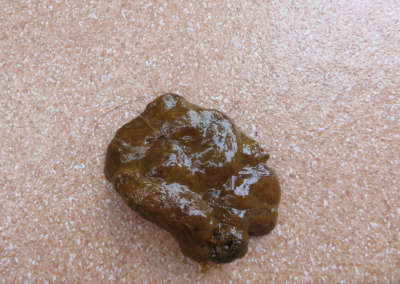
- White specks or flecks in the poop
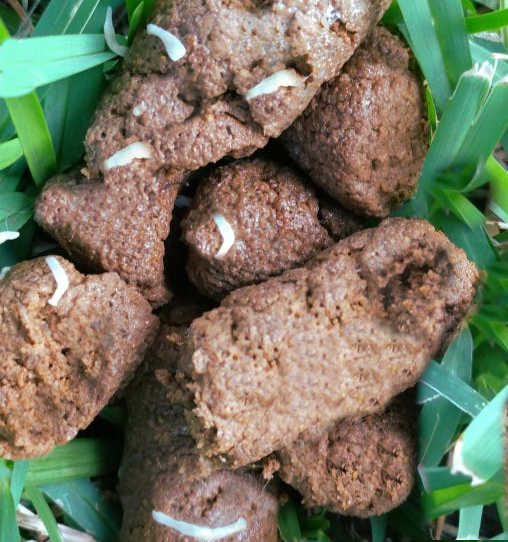
- Whitish streaks that look like spaghetti or bean/alfalfa sprouts depending on the type of worm (see information about long white worms in puppy’s poop later in this article).
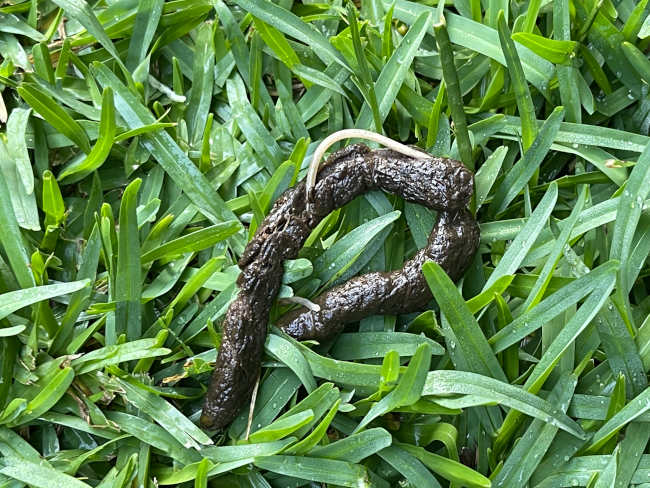
In addition to changes to the poop, some puppies can show other symptoms, like:
- Vomiting
- Weight loss/failure to thrive
- Distended abdomen
- Poor hair coat
- Change in appetite
- Pale gums
- Coughing
What types of worms might I find in my puppy’s poop?
There are various types of worms you may find in your puppy’s poop. Because young puppies have undeveloped immune systems and are more vulnerable to negative side effects, you should contact your veterinarian if you suspect your pooch has any intestinal parasites.
1. Roundworms
Roundworms are long white worms that may end up in your puppy’s poop. They are the most common parasite you may find in puppies’ stools. These worms mature in the small intestine and feed on your furbaby’s digested food. The adults are rather large and can resemble spaghetti in the stool or vomit.
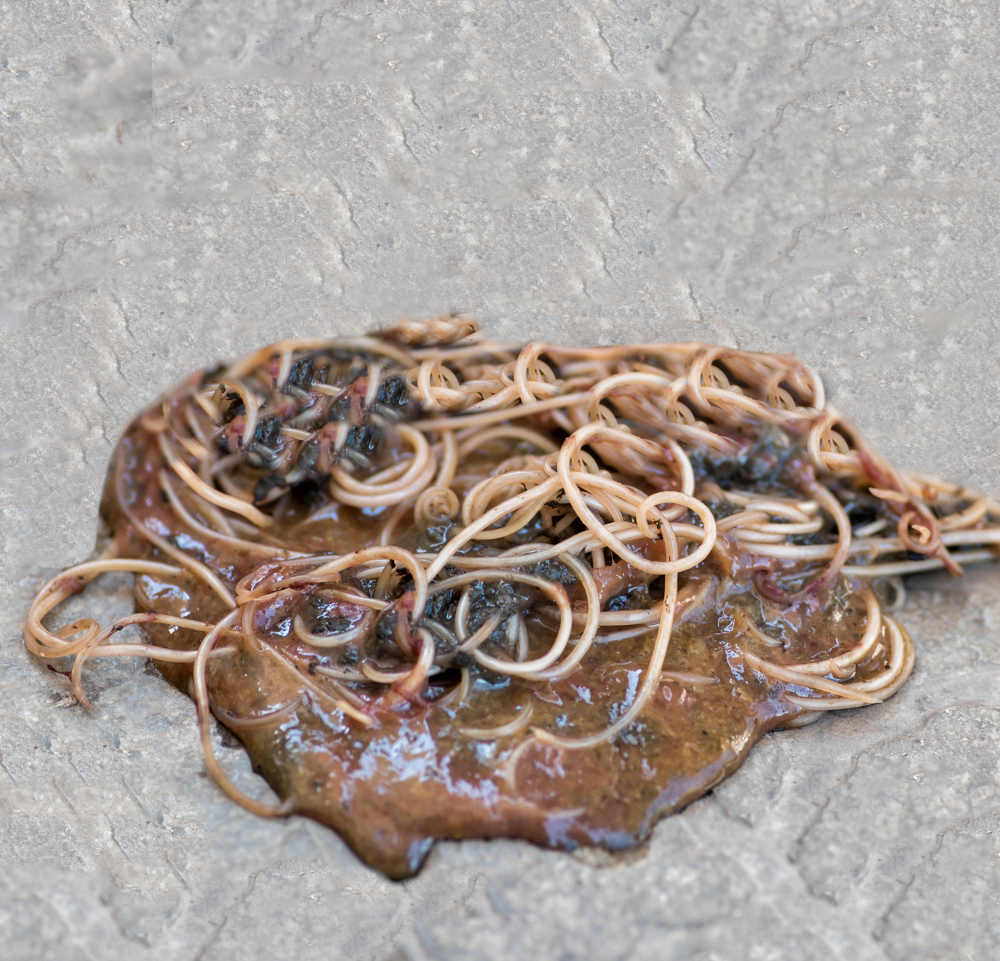
Signs of roundworms in your puppy include:
- Worms in the stool (long white worms)
- Failure to thrive
- Distended pot-belly abdomen
- Weight loss
- Diarrhea with or without mucus/blood
- Coughing
- Worms in vomit in severe cases
If you notice roundworms in your puppy’s poop, you should seek veterinary treatment as soon as possible. The parasites can make your puppy extremely uncomfortable and interfere with his ability to grow. If left untreated, severe infestations can cause seizures, pneumonia, and death. Fortunately, they are easy to eradicate with treatment. View more pictures of roundworms in dog’s poop.
2. Hookworms
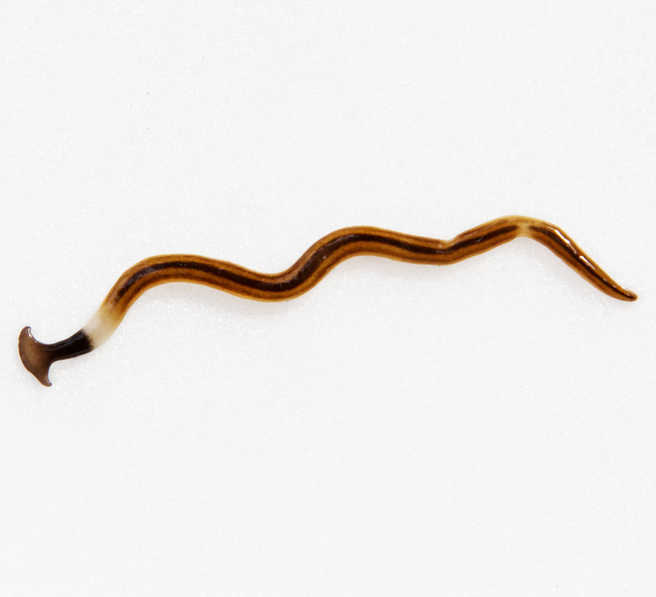
Hookworms are also commonly found in puppies. These worms attach to the intestinal lining and usually cause inflammation and damage to the tissue. They’re harder to find in the feces than roundworms. Often measuring about ⅛ inch long, these tiny parasites can trigger symptoms like:
- Weight loss
- Loss of appetite
- Anemia
- Pale gums
- Bloody diarrhea
Heavy infestations of hookworms in puppies can be deadly because the parasites feed on their host’s blood. If you suspect a hookworm infection, contact your veterinarian to begin treatment. Although some natural dewormers may be effective, there’s no guarantee that they’re safe for your pup.
3. Tapeworms
Occasionally, you may also notice tapeworm segments in puppy poop. These parasites have flat, segmented bodies. Adult worms periodically shed segments into the intestines, and they pass out of the body in the poop. You may notice segments that look like rice grains attached to your puppy’s anus or in the stool.
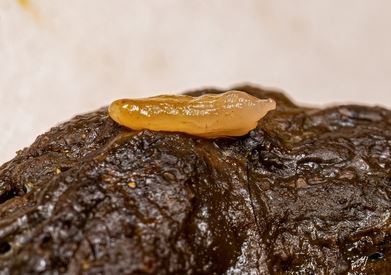
Fortunately, tapeworms don’t cause serious health issues in puppies. They’re usually detected when you notice segments in the stool or around the anus or because your puppy is scooting. If the infestation is severe, your pup may lose weight.
Treatment for tapeworms is easy, but reinfection can readily occur. You will need to treat your puppy’s surrounding environment and control fleas as they are a carrier of the parasite. View more pictures of tapeworms in dog’s poop and learn about veterinary treatments, or read our information about puppies with tapeworms.
4. Whipworms
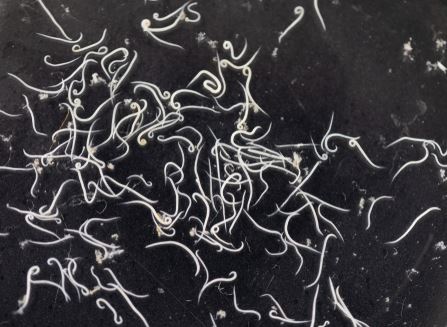
Whipworms are another intestinal parasite that puppies may get. These worms usually reside in the large intestines and attach to the mucosal lining. They’re usually about ¼ inch long and taper to a fine thread. Like hookworms, signs of severe whipworm infestations include:
- Watery diarrhea with blood and mucus
- Stool has a pungent odor
- Anemia
- Weight loss/failure to thrive
As with the other parasites, whipworms are easy to treat. If you notice thread-like worms in your puppy’s poop or other signs of the parasites, contact your veterinarian for an examination.
What are the common causes of worms in my puppy’s poop?
Your puppy can pick up worms in various ways, depending on the type of worm.
Roundworms: Puppies may pick up roundworms:
- Encysted larvae can pass through the mother’s placenta
- Puppies can get larvae from their mother’s milk while nursing
- Puppies ingest contaminated water or soil
Hookworms: In addition to the three routes of transmission listed for roundworms, hookworms can penetrate the skin barrier of your puppy’s belly or paws.
Tapeworms: Dogs become infected with tapeworms when they ingest an infected flea or rodent. Fleas are the most common route of transmission.
Whipworms: Puppies get a whipworm infection when they eat contaminated feces or soil.
What are the treatment options if my puppy has worms in his poop?
While there are natural and over-the-counter remedies available, we advise that you get a prescription medication from your veterinarian. Natural options may not be effective or safe, and some OTC choices can be toxic for your puppy.
Your veterinarian can examine your puppy and his feces to confirm and identify the parasites. He will also provide a dose of an anthelmintic drug like praziquantel or pyrantel based on your puppy’s size and weight. The medicine may be a liquid suspension, powder form, or a pill.
Deworming medicines target the adult stage of the parasite, so your puppy should have 2-3 doses with each dose occurring about 2 weeks after the previous treatment. This will help to address reinfection and eliminate the parasites.
When should I reach out to a vet?
If you see worms in your puppy’s poop, it’s best to contact your veterinarian. Leaving intestinal parasites untreated can lead to serious health conditions. Other signs that it’s time to contact your veterinarian include:
- Blood in the stool
- Vomiting and diarrhea
- Loss of appetite
- Lethargy or depression
- Weakness
- Pale gums
Frequently asked questions
Is blood in my puppy’s poop an emergency?
Anytime you see blood in your puppy’s stool, it’s an indicator that something is going on. It’s best to call your veterinarian and describe what you’re seeing, but it’s not always an emergency. However, seek immediate veterinary care if:
- There’s lots of blood in the stool
- The bloody stools are persistent
- Your puppy also has vomiting/diarrhea
- Your puppy won’t eat
- Your puppy is depressed or lehtargic
Can worms in puppies be removed at home?
There are some natural remedies and at-home treatments, but we recommend you see your veterinarian. He can provide a reliable prescription to help ensure your puppy’s safety.
How often should puppies be dewormed?
Puppies should be dewormed every 2-3 weeks to ensure all the worms are killed. Depending on your puppy’s environment, your veterinarian may recommend a series of 3 consecutive treatments, or he may advise you to continue treatment until your puppy is about 3 months old.
Can I do anything to prevent my puppy from getting worms?
While there are no guarantees that your puppy won’t pick worms up from local parks or other venues, you can take preventative measures at home.
- Routine fecal screenings for parasite eggs
- Routine deworming
- Stop your puppy from eating feces/immediately pick up his poop
- Don’t let your puppy eat dirt
- Use puppy-safe flea preventatives
Related posts:
Disclaimer: This website's content is not a substitute for veterinary care. Always consult with your veterinarian for healthcare decisions. Read More.




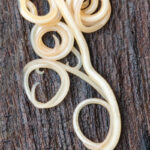


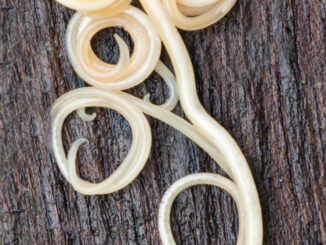
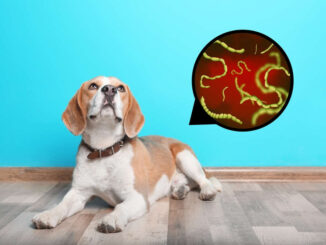
Be the first to comment